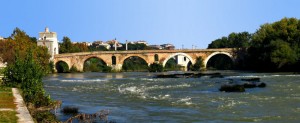 [1]Following my ordination my bishop assigned me to work in two yoked parishes. “Yoked” churches share a pastoral staff but are not merged. The pastor and myself worked to merge the parishes.
[1]Following my ordination my bishop assigned me to work in two yoked parishes. “Yoked” churches share a pastoral staff but are not merged. The pastor and myself worked to merge the parishes.
One parish was Irish. The other was Puerto Rican. The linguistic and traditional differences were palpable. Often I reflected on the sixth chapter of the Acts of the Apostles. “As the number of disciples grew, the Hellenists complained against the Hebrews because the needs of their indigents were being neglected.” The Hellenists spoke Greek. The Palestinian Christians spoke Aramaic. In response the Apostles created a new clerical caste, the deacons, to serve their assembly, thus freeing themselves to devote themselves to the ministry of the word and to prayer. They bridged the gap between the groups that spoke different languages but believed the same gospel.
The Church understood and accepted that this was the new normal. But the challenge posed by disunity still exists, regardless of language, class, or culture.
Saint Paul, himself a Hellenic Christian, sought to build bridges, not fences. His greatest concern was that of dissent among assemblies, the subject on which he wrote about more than any other topic. The emphasis he places on Christian solidarity comes across clearly in the first lines of his letter to the Philippians. “Complete my joy by being of the same mind, with the same love, united with one heart.”
If we walk with Christ, Paul writes, how can we allow division among believers? He dealt with this issue in all his communities. The Corinthians were legend for their discord and for flaunting his counsel even as he tried to catechize them on the Eucharist, the Church’s supreme source of unity. “The Eucharist unites the Church, transcends borders, languages, and cultures. Those who receive the Body and Blood of Christ are united to one another” (CCC 1396). The more the members of Paul’s churches resisted the harder he worked to unite them.
For me, learning Spanish was a struggle. I was given little formal instruction but poco a poco, “little by little” I learned the language to minister to the the Puerto Rican community. By the time I left I was fluent in Spanish and consider it one of the sharpest tools in my pastoral toolbox. Both communities resisted and the merger never happened. But it was not from lack of trying.
The debate over immigration from Latin America to the U.S. has divided many Catholics. But the Church is bigger than the nation’s immigration policies. She exists to welcome migrants throughout the world. Discord threatened the ancient church and continues to do so. It weakens the faith and opens the door for the devil to sow disharmony. To reflect on what Paul identifies as the antidote to disunity, the Eucharist, empowers us to build bridges, not fences.
In our Church today we have another new normal. There will always be an influx of migrants from Latin America, a huge continent where most speak Spanish. That truth frightens many people but it is a fear based in ignorance. Paul worked to unite varieties of Christians. He saw them as did Jesus: members of the body of Christ. “There is neither Jew nor Greek, slave nor freeborn, man nor woman. We are all one in Christ Jesus.”
Our catechism instructs us to welcome the migrant with love and respect even as it recognizes the right of a sovereign nation to secure its borders. Bishops in the Southwest visit the border and celebrate mass and distribute the Eucharist to the faithful on the other side of the wall between the United States and Mexico.
Jesus willed that the Apostles should bridge the gap between the Hellenists and the Hebrews. He commands us to do the same today. Like our ancestors, we have a new normal. We cannot sit on the fence.